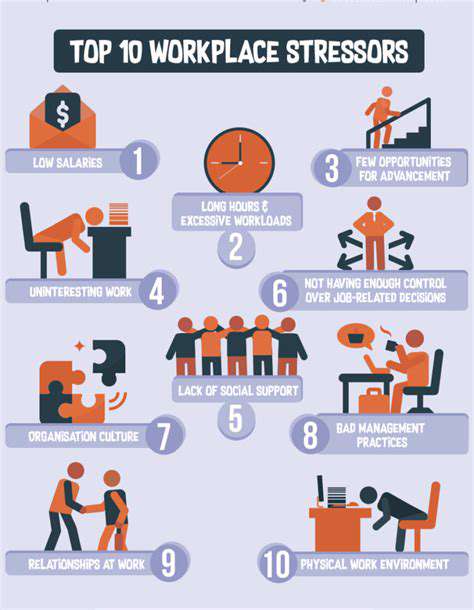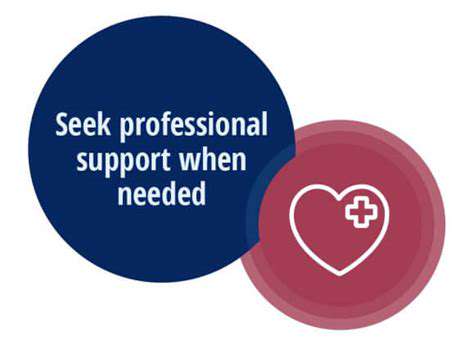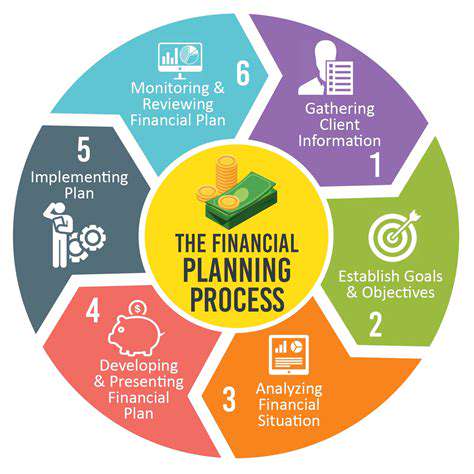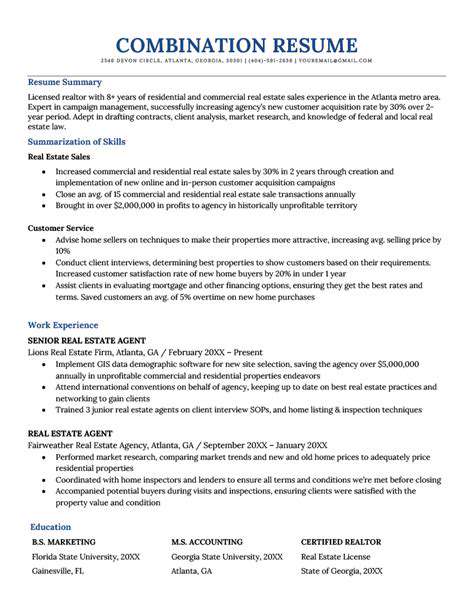Guide to Managing Stress in the Workplace
Identifying the Sources of Workplace Stress

Understanding Workplace Stressors
Identifying the sources of workplace stress is crucial for developing effective coping strategies and creating a healthier work environment. Workplace stressors can stem from various factors, including demanding workloads, inadequate resources, and interpersonal conflicts. Understanding these underlying causes is the first step towards mitigating their impact on employee well-being and productivity.
Many workplace stressors are rooted in systemic issues rather than individual personality clashes. A lack of clear communication channels, unclear expectations, and a heavy workload can all contribute to a sense of overwhelm and stress among employees. Acknowledging and addressing these systemic issues is essential for building a supportive and productive workplace.
Analyzing Individual Reactions to Stress
While workplace stressors are often systemic, individual reactions to those stressors vary widely. Some employees may be more resilient than others, and factors like personal coping mechanisms, support networks, and pre-existing health conditions can influence an individual's response to stress. It's important to recognize that stress manifests differently in each person, and a one-size-fits-all approach to addressing workplace stress is unlikely to be effective.
Recognizing these individual differences is key to tailoring interventions. For example, someone who thrives on challenge might react differently to a demanding workload than someone who prefers a more predictable environment. By understanding these individual reactions, managers and HR professionals can develop more personalized strategies for supporting employees.
Implementing Effective Stress Management Techniques
Once the sources of workplace stress and individual reactions are understood, the next step involves implementing effective stress management techniques. These techniques can range from simple relaxation exercises to more comprehensive strategies like mindfulness training and time management workshops. Implementing these strategies within the workplace can drastically improve employee well-being and lead to a more productive and engaged workforce.
Creating a supportive work culture is paramount. Encouraging open communication, promoting healthy work-life balance, and providing access to resources like employee assistance programs can significantly lessen the impact of stress on employees. A proactive approach to stress management empowers employees to take control of their well-being and maintain optimal performance.
Creating a Supportive Work Environment
Ultimately, a supportive work environment is essential for mitigating workplace stress. This involves fostering a culture of trust, respect, and open communication, where employees feel comfortable expressing their concerns and needs without fear of reprisal. Creating a positive and supportive atmosphere can dramatically reduce stress levels and lead to a more productive and engaged team.
Providing resources and support is another crucial component of creating a supportive environment. This includes access to wellness programs, mental health services, and employee assistance programs. These resources equip employees with the tools they need to manage stress effectively and maintain their well-being.
Prioritizing Self-Care and Work-Life Balance
Understanding the Importance of Self-Care
Prioritizing self-care is crucial for maintaining a healthy work-life balance and effectively managing stress in the workplace. A well-rested and rejuvenated individual is better equipped to handle the pressures of demanding work environments. Consistent self-care practices, such as regular exercise, sufficient sleep, and healthy eating, directly impact emotional well-being and cognitive function. Neglecting self-care can lead to burnout, decreased productivity, and increased susceptibility to stress-related illnesses. Taking time to nourish your physical and mental health is not a luxury but a necessity for long-term well-being and success in both personal and professional life.
Implementing simple self-care strategies, even in small increments, can significantly improve your overall experience. These practices can include activities like mindfulness exercises, spending time in nature, engaging in hobbies, or simply taking breaks throughout the workday. Recognizing the importance of these activities and scheduling them into your routine is key to establishing healthy habits and preventing stress from overwhelming you. Understanding how your body and mind respond to different activities and finding activities that truly recharge you is also an important part of this process.
Creating a Sustainable Work-Life Balance
Establishing a healthy work-life balance is essential for managing stress and preventing burnout. This involves recognizing the boundaries between work and personal time and actively protecting your personal time. This doesn't mean avoiding work altogether, but rather establishing clear boundaries around work hours and avoiding overwork. Effective time management techniques, such as prioritizing tasks, setting realistic deadlines, and learning to say no to additional commitments when necessary, are vital for maintaining balance.
Another crucial aspect of work-life balance is creating a supportive network. Connecting with colleagues, family, and friends can provide valuable emotional support and reduce feelings of isolation. Open communication with loved ones about work-related pressures and proactively seeking help when needed can significantly lessen the burden of stress. Building a strong support system can make a big difference in navigating the challenges of a demanding work environment.
Additionally, consider your work environment. A stressful work environment can significantly impact your ability to maintain a healthy balance. If possible, identify areas where you can improve your environment, whether that's asking for different responsibilities, seeking a change of role, or simply requesting a change in your workplace. Open communication in the workplace is key to identifying and addressing stress triggers.
Implementing Practical Strategies for Stress Management
Effective stress management techniques are essential for maintaining a healthy work-life balance. These strategies encompass a wide range of practices, from simple relaxation techniques to more structured approaches like mindfulness exercises and meditation. Incorporating these practices into your daily routine can help manage stress effectively.
Identifying your personal stressors is a critical first step in developing effective coping mechanisms. Recognizing what triggers your stress reactions allows you to proactively address these triggers and develop strategies to mitigate their impact. This process involves honest self-reflection and a willingness to understand your own emotional responses.
Taking regular breaks throughout the workday is often overlooked but can be incredibly beneficial. Short breaks, even just a few minutes, can help refresh your mind and body. This can involve stepping away from your work, engaging in a short physical activity, or simply taking a few deep breaths. Establishing these short breaks can significantly improve your overall work experience by reducing stress and enhancing focus.
Seeking professional guidance, such as counseling or therapy, can be a valuable resource for managing stress, especially if you're experiencing persistent or overwhelming feelings of stress. Mental health professionals can provide tailored strategies and support to help you navigate challenges and develop healthy coping mechanisms. Don't hesitate to reach out for help when needed.
Effective Communication and Conflict Resolution Strategies
Understanding the Role of Communication in Stress Management
Effective communication is a cornerstone of stress management. When we can clearly articulate our needs, concerns, and feelings, we reduce the internal pressure that often leads to stress. This clarity allows others to understand our perspective and respond appropriately, fostering a supportive environment. Poor communication, on the other hand, can lead to misunderstandings, assumptions, and unresolved issues, all of which contribute to stress and potentially escalate conflicts.
Identifying our preferred communication styles and recognizing those of others is crucial. Understanding whether we are more direct or indirect communicators, and acknowledging the potential for differing styles in others, helps us navigate interactions more effectively. This awareness also helps us tailor our approach to ensure our message is received as intended and fosters positive relationships. Ultimately, clear and constructive communication is a powerful tool for managing stress and promoting well-being.
Conflict Resolution Techniques for Stress Reduction
Conflicts are inevitable in any interpersonal relationship, whether personal or professional. However, the way we approach and resolve conflicts significantly impacts our stress levels. Learning and applying effective conflict resolution techniques is therefore a vital skill for stress management. Active listening, where we focus on understanding the other person's perspective rather than formulating our response, is key to de-escalating tension and fostering a constructive dialogue. This active engagement encourages empathy and understanding, reducing the likelihood of emotional reactivity and promoting a more collaborative environment.
Compromise and negotiation are essential components of conflict resolution. Finding common ground and exploring solutions that satisfy all parties involved reduces the feeling of being unheard or disregarded. This collaborative process fosters a sense of ownership and shared responsibility, making it more likely that the resolution will be sustainable and less likely to lead to future conflicts. By understanding and practicing these techniques, we can transform conflict into an opportunity for growth and learning.
Building Healthy Communication Habits for Long-Term Stress Reduction
Building healthy communication habits is an ongoing process that contributes to long-term stress reduction. Regular practice of active listening, empathy, and clear articulation of needs fosters a supportive environment, allowing for smoother interactions and fewer misunderstandings. Creating a safe space for open communication, where individuals feel comfortable expressing their thoughts and feelings without fear of judgment, is paramount to building strong relationships. This fosters trust and mutual respect, reducing stress and promoting a more positive atmosphere.
Regular reflection on communication patterns, both our own and those of others, is essential for continuous improvement. Identifying areas for growth and proactively working to improve our communication skills, including seeking constructive feedback, will contribute significantly to ongoing stress reduction and the well-being of ourselves and those around us. This ongoing commitment to building healthy communication habits creates a foundation for managing stress effectively and building fulfilling relationships.







![How to Style Your Shelves [Decor Tips]](/static/images/31/2025-06/AccessorizingYourShelvesforaPolishedLook.jpg)




